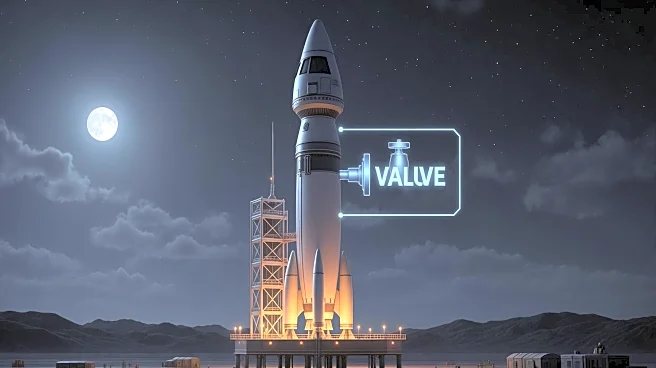What's Happening?
United Launch Alliance (ULA) has postponed the launch of the ViaSat-3 F2 satellite due to a valve issue with the Atlas 5 rocket. The launch was scheduled to take place from Cape Canaveral Space Force Station
but was scrubbed after a problem was detected with the booster liquid oxygen tank valve during final checkouts. The satellite, weighing 6 metric tons, is intended for geosynchronous transfer orbit and will provide Ka-band network capabilities over the Americas. The launch was initially planned for a 44-minute window starting at 10:16 p.m. EST, with favorable weather conditions forecasted by the 45th Weather Squadron. ULA has not announced a new launch date following the scrub.
Why It's Important?
The delay in launching the ViaSat-3 F2 satellite impacts Viasat's plans to expand its network capacity and improve service offerings. The satellite is expected to add more than 1 terabit per second of capacity, enhancing connectivity for users across the Americas. This postponement may affect Viasat's timeline for entering service in early 2026, potentially delaying the benefits of increased bandwidth and dynamic beam forming capabilities. The issue also highlights the challenges faced by ULA in maintaining reliability and timely delivery of satellite launches, which are crucial for commercial and government communication services.
What's Next?
ULA will need to resolve the valve issue before rescheduling the launch. Once launched, the ViaSat-3 F2 satellite will undergo months of on-orbit testing before entering service. Viasat aims to leverage the satellite's capabilities to enhance its service platforms and offer resilient, hybrid SATCOM architecture for government use. The successful deployment of the satellite is critical for Viasat's strategic growth and service expansion.
Beyond the Headlines
The postponement underscores the technical complexities involved in satellite launches and the importance of thorough pre-launch checks. It also highlights the competitive landscape in the satellite communications industry, where companies like Viasat are racing to expand their networks and improve service offerings. The delay may provide an opportunity for competitors to advance their own satellite deployment plans.









